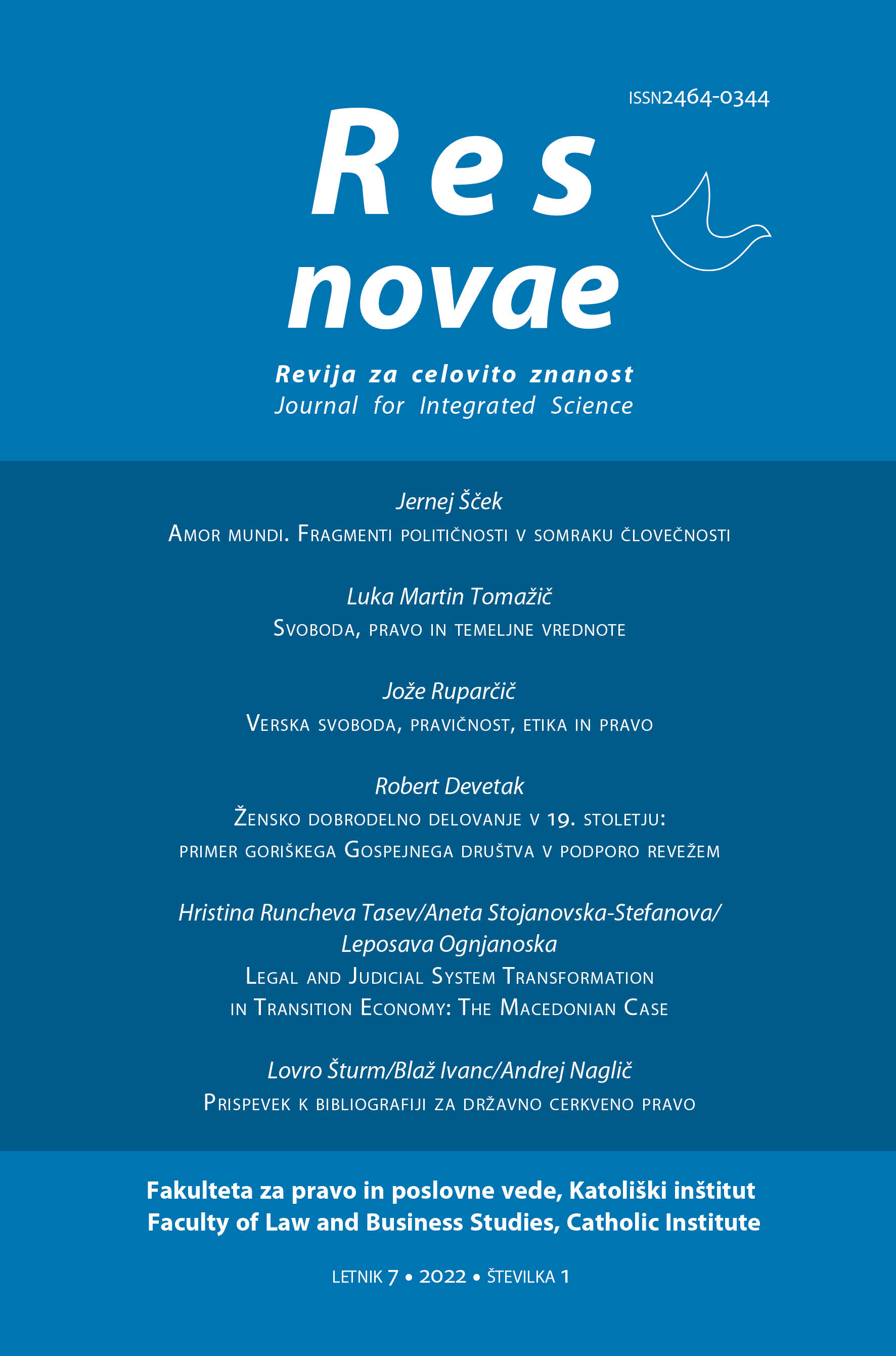Religious Freedom, Justice, Ethics, and Law
Jože Ruparčič
Religious Freedom, Justice, Ethics, and Law
DOI: https://doi.org/10.62983/rn2865.22a.3
Key words: religious freedom, human dignity, pluralism, tolerance, state neutrality, spiritual integrity, doctrine of religion, human rights
Abstract:
The right to religious freedom is one of the foundations of a free, plural, tolerant and generous democratic society. However, this right is not absolute, as it must be protected in relation to other values. The European Court of Human Rights protects the freedom to exercise religion based on the values of pluralism, tolerance, state neutrality and respect for the urgent social needs of European society in all cases. Individuals have a key responsibility in creating a tolerant, free-thinking, and plural practice of religion in public space in any European society. Freedom of religion is once again the focus of European societies. The importance of religion in public space is one of the most pressing topics in modern European societies, because it is directly related to the protection of human dignity in both private and public life. It is part of the spiritual integrity, which together with the physical forms the notion of human dignity. Religious freedom is first and foremost a defensive right. The term freedom emphasizes the admissibility of certain conduct. The duty to act is emphasized in the case of the use of the term right. Freedom means above all the possibility of demanding the non-interference of another. The right goes further and represents an opportunity to demand a certain action of another in favor of the right holder. This means that the state, local communities, and other holders of public authority must not inadmissibly interfere with freedom of religion. The state may not decide on matters concerning the doctrine of religion or the internal autonomy of churches or other religious communities; require commitments to religious issues; reward or punish acts that constitute a profession of religion; discriminate against human rights and fundamental freedoms; and unjustifiably differentiate (privilege or neglect) individuals because of their religion.
PDF



